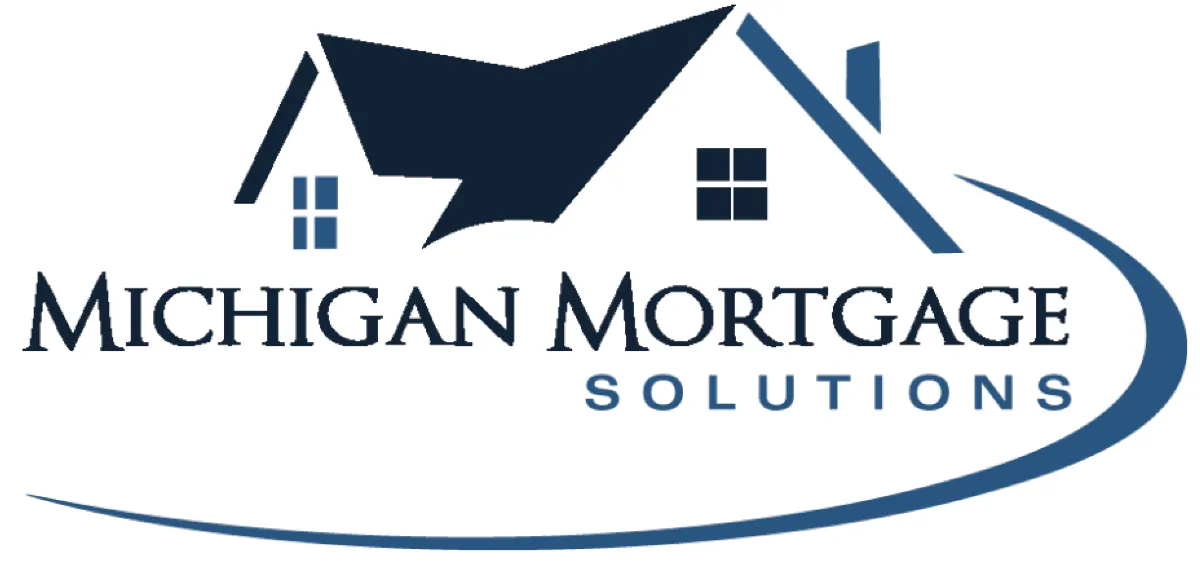Fix and Flip Loans Michigan: How to Secure Fast Funding Now
Did you know that Michigan’s fix and flip market has seen double-digit growth in the past year, making it a prime location for savvy real estate investors? If you’ve ever dreamed of transforming a distressed property into a profitable investment, fix and flip loans Michigan are your key to moving fast, renovating smart, and maximizing returns. In this comprehensive guide, you'll discover exactly how to leverage Michigan's unique lending landscape—giving you the funding edge to buy, renovate, and resell or rent properties in high-demand neighborhoods across the state.
Breakthrough Opportunities: Why Fix and Flip Loans Michigan Empower Real Estate Investors
“Did you know that Michigan’s fix and flip market has seen double-digit growth in the past year, making it a prime location for savvy real estate investors?”
The Michigan real estate landscape is evolving rapidly—creating new and unprecedented opportunities for real estate investors looking to maximize profits with quick, targeted renovation projects. Fix and flip loans Michigan are designed specifically for flip investors who need to act fast in competitive markets. These flip loans provide access to significant amounts of capital, sometimes based primarily on the projected after-repair value of a distressed home. This enables investors to acquire, rehab, and resell properties much faster than with traditional mortgages.
What sets Michigan apart isn't just its market growth—it's the unique fix and flip loan programs offered by local lenders who truly understand the nuances of neighborhoods from Detroit to Grand Rapids. These lenders offer hard money loans and private funds tailored to the region’s real estate needs, making the approval process faster and more flexible than ever. Whether your strategy is to flip for short-term profits or create long-term rental income streams, Michigan’s loan ecosystem is ready to support your ambitions.
What You’ll Learn About Fix and Flip Loans Michigan
How fix and flip loans Michigan work in today’s real estate market
Requirements and tips for real estate investors seeking fast approval
Pros and cons of fix and flip loans versus other real estate financing options
What differentiates Michigan’s loan programs from national lenders
Understanding Fix and Flip Loans Michigan: A Real Estate Investor’s Guide
For the aspiring or seasoned real estate investor, fix and flip loans in Michigan are game-changers. Unlike long-term mortgages, these unique loans cater to short-term real estate projects—such as buying a run-down property, renovating it quickly, and selling it for a profit. Michigan’s market has fostered a wide range of these loan products, often facilitated by local hard money lenders who know the specific territories, local comps, and market cycles.
By understanding the ins and outs of the different loan programs available, investors can make informed decisions that improve their margins and project timelines. Whether you’re targeting urban flips in Detroit or historic renovations in Grand Rapids, knowing your options and requirements is the difference between getting a project funded fast or missing out on opportunities in a hot real estate market.
What Are Fix and Flip Loans Michigan?
Fix and flip loans Michigan are short-term financing solutions for real estate investors who purchase undervalued properties with the intent to renovate and resell—or sometimes refinance into long-term rentals. Unlike traditional bank loans, these are asset-based loans, primarily relying on the property’s current value and potential after-repair value (ARV).
This loan type is designed for speed and flexibility, allowing investors to close deals quickly (sometimes in as little as 7-10 days) and cover both the purchase price and substantial rehab costs. Most importantly, fix and flip loans enable Michigan investors to compete aggressively in cutthroat bidding wars, because sellers often look for buyers who can close fast without cumbersome underwriting delays associated with conventional financing. The nature of these loans means requirements focus more on experience, project feasibility, and market value rather than solely on the borrower's personal credit score or income history.
Core Features of Michigan Fix and Flip Loans
Loan amounts and terms for local Michigan projects
Interest rates, fees, and payment structures
Fast approval process tailored to Michigan real estate market
Michigan fix and flip loan programs stand out for several core features:
Loan Amount and Term: Local lenders typically fund up to 70-90% of the purchase price and may cover 100% of estimated renovation costs, with loan terms ranging from 6 to 18 months. This quick cycle is perfect for investors who want to flip in under a year.
Interest Rates and Fees: Interest rates are higher than conventional mortgage options, often ranging from 8% to 12%, depending on your credit score, project risk, and experience level. Origination fees and points (1-3%) are common, but these costs are often offset by the speed and flexibility a fix and flip loan provides.
Speedy Approval: The approval process is notably fast, with decisions in just days and funding soon after. Lenders focus on your flip project, the property’s potential, and your past track record rather than on your income or reserves, making this an accessible option for ambitious Michigan estate investors targeting quick deals and rapid ROI.
Fix and Flip Loan Options in Michigan: Comparing Flip Loans, Hard Money, and More
When exploring fix and flip loans Michigan, investors can choose from several key financing types—each with unique benefits. Understanding the pros and cons of hard money loans vs. conventional flip loans, and private lender options is vital for maximizing your project’s profitability and flexibility. Local banks may offer traditional fix and flip mortgages, but fast-paced investors often lean toward hard money or private lending for faster closings and less stringent qualification.
Compare these solutions carefully, considering each one's loan amount options, interest rate ranges, approval timelines, and suitability for your investment strategy.
Comparison of Fix and Flip Loan Types in Michigan | ||||
Loan Type | Loan Term | Interest Rate | Maximum Loan Amount | Approval Process Speed |
|---|---|---|---|---|
Hard Money Loan | 6-18 months | 8% - 12% | Up to 90% purchase + 100% rehab | 1-2 weeks |
Conventional Flip Loan | 12-24 months | 6% - 9% | Up to 80% purchase | 3-6 weeks |
Private Lender | 6-24 months | Varies (8% - 14%) | Negotiable | 3-10 days |
Hard Money vs. Conventional Flip Loan: Which Suits Your Real Estate Project?
Hard money loans are preferred by many Michigan real estate investors due to their rapid approval and funding times—crucial when competing for hot properties that might otherwise slip away. These loans focus on the property's after-repair value rather than just your personal finances. If you need funding in as little as a week and are confident in your renovation timeline, hard money is typically the way to go.
On the other hand, conventional flip loans offer slightly lower interest rates but require a longer, more traditional underwriting process. These are best suited for experienced investors with strong credit and multiple completed flips in their track record. While approval may take longer, you could save on interest charges over the loan's term. Ultimately, your project size, time frame, and experience will guide your best loan choice.
Spotlight: Michigan-Specific Lenders Specializing in Fix and Flip Loans
Michigan’s real estate lending scene is packed with local hard money lenders who know the state’s diverse markets—from Detroit’s urban resurgence to Grand Rapids’ thriving suburbs. These lenders often provide flexible draw schedules for renovations, personalized service, and targeted advice that national chains can’t offer. They may even assess your flip project in person, increasing your chances of quick approval if you have a solid plan and a proven track record.
Partnering with a Michigan-based money lender also means you get tailored loan programs, as well as insights into the state's regulatory environment, neighborhood trends, and construction costs—which can be game-changers for both first-time and experienced fix and flip investors.
How to Qualify for Fix and Flip Loans Michigan: Requirements, Credit Score, and Down Payments
Qualifying for fix and flip loans Michigan is more about your project's feasibility and your own experience than your paycheck or tax returns. The goal for lenders is ensuring you'll complete the project on time, within budget, and with enough equity to cover the loan—making them more forgiving of minor credit blemishes than banks.
Nevertheless, understanding what lenders want—including minimum credit score requirements, standard down payments, and acceptable documentation—will not only boost your chances of a quick approval but can get you more favorable loan terms. Here’s a breakdown of key qualification factors in Michigan:
Key Fix and Flip Loan Requirements for Real Estate Investors
Minimum credit score for fix and flip loans Michigan
Typical down payment expectations
Required documentation for hard money loan approval
Qualifying experience as a real estate investor
Michigan lenders generally look for a credit score of at least 620, although some will fund experienced investors even if they fall below this mark—especially if their track record is proven. Expect to put down 10-20% of the purchase price (lower for experienced investors). Be prepared to provide purchase agreements, detailed budgets, project timelines, and evidence of renovation experience—anything that will reassure the lender you can execute your flip project successfully. For hard money loan approvals, quick but complete documentation is key, and your ability to estimate rehab costs with precision is often make-or-break.
The Michigan Real Estate Market: Where Fix and Flip Loan Strategies Thrive
Michigan's property landscape is a mixture of undervalued gems and growth hotspots—and for those with the experience and vision, this means the potential for substantial profits. Markets like Detroit, Grand Rapids, Ann Arbor, and Kalamazoo are particularly friendly to fix and flip investors.
Major metropolitan areas feature a steady stream of older homes primed for renovation, while smaller cities offer tighter-knit investor communities and fewer bidding wars. Understanding Michigan’s local trends, city-specific regulations, and economic cycles can help fix and flip investors time their projects for maximum ROI, making a well-planned flip loan a smart tool for success.
Best Michigan Cities for Real Estate Investors Using Fix and Flip Loans
Detroit
Grand Rapids
Ann Arbor
Kalamazoo
Each of these cities offers unique returns for fix and flip loans Michigan. Detroit's revitalizing neighborhoods repeatedly provide low-entry prices and high resale potential. Grand Rapids' stable population growth and robust demand for modernized homes draw many flip investors. Ann Arbor benefits from a strong rental market thanks to the university's presence, while Kalamazoo combines affordability with growing buyer interest. Know your target city’s median home price, days on market, and renovation demand—these numbers should drive both your project choice and your final investment strategy.
Timing Your Flip Project for Maximum ROI in the Current Estate Market
The best time to start a Michigan flip project is when inventory is modest, values are climbing, and buyer demand is strong—often in the late spring through early fall. Focus on areas with reliable comps and strong post-renovation sales. Researching trends, local job growth, and neighborhood revitalization projects can help forecast the most profitable windows for your next deal.
The current real estate market in Michigan presents ongoing opportunities, particularly for those who can secure funding quickly and execute renovations efficiently. Stay attuned to seasonal shifts, watch for new development announcements, and connect with local realtors to stay ahead of the competition. Timing isn’t everything—but in the flip game, it can be the difference between decent returns and a blockbuster success.
The Fix and Flip Loan Application and Approval Process in Michigan
Getting your project off the ground swiftly starts with a streamlined loan app and a reliable lender. Most Michigan fix and flip lenders have moved to rapid online submission forms and digital document uploads, reducing wait times and improving overall access for experienced and new investors alike.
Knowing exactly what steps are involved—and preparing your property comps, renovation budget, and exit strategies—turns the approval process from a hurdle into a stepping stone for your investing career.
Step-by-Step Guide: Applying for Fix and Flip Loans Michigan
Pre-qualification: Assessing your flip project and financials
Submitting documents and application to lenders
Understanding the approval process and timeline
Receiving funding and starting your real estate investment
1. Pre-qualification: Gather information about your intended investment property (property address, comps, estimated ARV, rehab costs), your track record, and your funding needs for both purchase and renovation.
2. Application Submission: Complete the lender’s loan app by including purchase contract, renovation scope, and proof of experience.
3. Fast Approval: Lenders in Michigan pride themselves on a fast approval process—often issuing a terms sheet in 48-72 hours once all documents are submitted.
4. Funding and Project Launch: Once approved, you'll receive funds, either as a lump sum or in draws aligned with construction milestones. You can close on your property, begin renovations, and get to work on your exit strategy, turning distressed properties into profitable assets.
How Much Can You Borrow? Fix and Flip Loan Amounts and Determining Project Budgets
One of the biggest benefits of fix and flip loans Michigan is the ability to secure enough capital to both purchase and renovate properties—even if you’re not sitting on piles of cash. But borrowing “enough” is about more than just the loan amount—you’ll want to calculate precise renovation costs, factor in contingencies, and ensure you’re not overleveraging.
Understanding how lenders determine the loan amount, and how you can best estimate your total project budget, will protect your profit margins and set you up for repeat success.
Calculating Loan Amounts and Estimating Renovation Costs
Most Michigan lenders base their loan amounts on whichever is lower: a percentage of the property’s purchase price (usually 70-90%) or its future after-repair value. They’ll factor in anticipated renovation costs—which you need to estimate with care, preferably with contractor bids and itemized budgets.
To avoid running out of money halfway, always pad your calculations with a 10-15% contingency. Review past projects, talk to local contractors, and use recent comps to forecast the home's likely resale value. Remember, if you underestimate rehab costs or overstate the ARV, you risk falling short not just of funding but of your profit goals.
How Lenders Assess Your Investment Property in Michigan
Local lenders look at your investment property’s potential—not just its current state. The most important factors are location, comparable sales (“comps”), renovation plan, and your own track record as an investor. A well-supported ARV, solid contractor estimates, and a clear exit strategy are crucial.
Be prepared for a site visit by the lender’s appraiser and possible review of previous flips you’ve completed. The better your documentation and business plan, the easier it will be to maximize your loan amount and minimize your out-of-pocket funding.
Interest Rates and Loan Terms: What Michigan Real Estate Investors Should Expect
Interest rates and loan terms for Michigan fix and flip loans can seem high compared to standard mortgages, but remember: these loans are meant for rapid, high-return projects. Typical annualized rates run between 8% and 14%, with origination fees and short terms designed to be repaid as soon as you sell or refinance the property.
Understanding the standard terms for these loans, and how your experience level impacts rates, will help you budget more accurately and avoid financing surprises when it matters most.
Typical Loan Terms for Fix and Flip Loans Michigan
Range of interest rates for hard money loans and flip loans
Average loan term length for Michigan properties
Interest rates for Michigan fix and flip loans generally range from 8% to 12% for hard money or private loans. Terms are short—usually 6 to 18 months—catering to quick turnaround projects. More experienced investors may qualify for better rates or lower points (one-time loan fees).
While these rates are higher than traditional mortgages, they reflect the greater risk and shorter time horizon associated with flips. Carefully weigh the cost of capital against the expected return on your project, and build payment timelines into your exit strategy.
Benefits and Risks of Fix and Flip Loans Michigan for Estate Investors
Borrowing for a flip project offers major upsides—but it’s not without risk. Fix and flip loans in Michigan empower real estate investors to act quickly and compete with all-cash buyers, but the higher rates and limited loan term make careful planning essential.
Pros of Using Fix and Flip Loans in the Michigan Real Estate Market
Quick access to capital
Flexible qualification for real estate investors
Ability to compete in a hot real estate market
Rapid funding can turn a discounted property into a profitable flip—often before competitors can even secure bank financing. Additionally, less stringent qualification criteria mean newer fix and flip investors can break in quickly, provided their plan is sound. The combination of speed and flexibility makes this financing model the weapon of choice for those serious about scaling a real estate investment business in Michigan.
Potential Drawbacks and Risks for Estate Investors
Higher interest rates than conventional loans
Short loan terms
Property value/economic risks in the local estate market
The trade-off for quick, flexible financing is higher cost and greater risk. If you underestimate rehab costs or the Michigan estate market sours before you sell, your profits can evaporate. Short loan terms mean you must work efficiently and anticipate delays from contractors, permitting, or bad weather—since failing to exit in time could result in penalty fees or even foreclosure. Seasoned estate investors always plan for the unexpected and have backup strategies for refinancing, renting, or even breaking even if the market shifts.
Michigan real estate investor John Doe: “Fix and flip loans let me act quickly on undervalued properties others overlook.”
Expert Tips for Real Estate Investors Succeeding with Fix and Flip Loans Michigan
Success in Michigan’s fix and flip scene requires more than cash—it takes the right plan, the right partners, and the right process. These proven tips from seasoned investors will help you maximize ROI and minimize common pitfalls.
List of Top Tips: Maximizing ROI and Navigating Flip Project Challenges
Choose the right property and estimate renovation costs with precision
Understand lender expectations and approval process
Plan your exit strategy in advance
Partner with reliable contractors and real estate agents
Start by targeting properties with solid comparable sales and clear, manageable renovation costs. Use detailed, itemized budgets and get multiple contractor bids. Before you ever apply for a fix and flip loan, know how you’ll exit—be it resale, refinance, or rental. Forge relationships with experienced realtors and contractors in the Michigan market, and always keep open lines of communication with your lender for a smoother project flow.
Most importantly: stay disciplined with your timeline and budget—rushing leads to missed details, while delays rack up avoidable costs.
Case Studies: Real Michigan Real Estate Investors Using Fix and Flip Loans
Learn from the real stories of Michigan investors who leveraged fix and flip loans to transform distressed properties into success stories. Their experiences offer valuable insights on what works, what to avoid, and how to replicate their results in your next project.
Case Study 1: Detroit Flip Project – From Acquisition to Resale
A group of Detroit-based investors purchased a historic home at a deep discount with a hard money loan. Using detailed project management and reliable contractors, they renovated the property within four months—overhauling plumbing, electrical, and surfaces. The team closely monitored their budget and coordinated with local realtors for an optimal resale price. After listing, the property sold in less than two weeks, netting a 32% profit over costs—even after accounting for higher interest rates and loan fees. This flip wouldn't have been possible without the rapid funding and flexibility of a Michigan-based lender.
Case Study 2: Grand Rapids Fix and Flip Investor Success Story
In Grand Rapids, a solo real estate investor secured a fix and flip loan for 85% of the purchase price plus 100% of renovation costs. Their careful prep work—meticulous contractor bids, tight timelines, and ongoing communication with the lender—avoided costly overruns. Within six months, they completed the transformation and refinanced into a long-term rental loan, locking in both profit and future cash flow as a landlord. This case proves that thorough planning, access to Michigan’s specialized lenders, and smart risk management can pay dividends whether your goal is flipping or buy-and-hold investing.
People Also Ask: Fix and Flip Loans Michigan FAQs
How to qualify for a fix and flip loan?
To qualify for a fix and flip loan Michigan, you typically need a minimum credit score (usually 620+), a documented plan for your flip project, experience with renovations or property management, and sufficient funds for the down payment. Lenders often require detailed budgets, recent comps, evidence of your track record as an estate investor, and sometimes a contractor bid. The more complete your documentation and the clearer your renovation plan, the faster you'll secure approval.
What lenders look for: Experience, property type, and credit score; how to prepare your documentation for a Michigan hard money lender.
Lenders assess your ability to deliver by reviewing your experience (“track record”), the property's after-repair value, and your credit score. Be ready to present a professional project summary—including ARV comps, cost breakdowns, timelines, photos, and proof of past flip loans or completed renovations. For hard money loan approvals in Michigan, speed and accuracy matter: the more organized and reliable your paperwork, the faster you'll move through the approval process.
Are fix and flip loans worth it?
For most active Michigan real estate investors, fix and flip loans are absolutely worth considering. The ability to secure rapid funding and act on distressed properties before competitors—even at a higher cost—can often translate into substantial returns, especially in high-demand areas. Weigh the potential profit (ROI) against the cost of capital and always factor in extra funds for contingencies. If you have a sound project and strong exit plan, the numbers nearly always add up.
Weighing ROI: Michigan’s property values, demand cycles, and how fix and flip loans can enhance profits compared to traditional real estate loans.
Michigan’s strong buyer demand and low inventory often mean trimmed timelines from acquisition to resale—limiting your carrying costs and increasing your ROI. Compared to traditional loans, fix and flip loans offer faster access to capital and more flexible qualification, allowing you to scoop up deals others can’t touch. Focus on clear ROI calculations: projected sale price minus total investment (including financing and rehab costs) equals your potential profit.
What credit score do you need for a fix and flip loan?
Most Michigan lenders require a credit score of 620 or higher for fix and flip loans. However, with extensive track record or the right equity cushion, some lenders will make exceptions for experienced investors. Remember, your project’s viability, exit strategy, and documentation can tip the scales in your favor even if your personal credit isn’t perfect.
Explaining typical minimum credit score requirements for Michigan lenders and how other factors impact approval.
While the “average” minimum credit score is 620, Michigan lenders always consider the big picture. If you have a lower score but an exceptional project, substantial down payment, or proven flip experience, you can often still get approved. Factors such as market location, property type, and your ability to supply professional documentation all influence the final decision.
Do you need a down payment for a fix and flip loan?
Yes, most fix and flip loans Michigan require a down payment—usually 10-20% of the purchase price. Some lenders will partner creatively with experienced investors, allowing for lower cash outlay in exchange for equity or higher rates. For first-timers, expect to fund at least 15% out of pocket, plus any upfront closing or renovation costs not covered in the loan.
Standard down payment ranges for Michigan fix and flip loans; creative seller and lender strategies.
Expect down payments in Michigan to range from 10% for experienced flip investors to 20% for newer applicants. Some sellers and lenders will negotiate creative terms, such as deferred payments, seller financing, or split-equity arrangements—especially in collaborative, relationship-based investment communities prevalent in Grand Rapids and Detroit.
FAQs: Everything Else About Fix and Flip Loans Michigan
Can new investors get approved for fix and flip loans Michigan?
How long does approval take?
Are there prepayment penalties on Michigan fix and flip loans?
Can new investors get approved? Yes, but you’ll need a compelling renovation plan, solid documentation, and the right lender. Many Michigan hard money lenders are willing to fund first-timers if backup support, such as an experienced contractor or mentor, is in place.
How long does approval take? Approval speed varies but is often completed in 3-10 business days for hard money or private loans. Traditional bank-driven flip loans may require several weeks.
Are there prepayment penalties? Most Michigan-specific lenders offer flexible, penalty-free early payment, but always check your loan terms to avoid unexpected fees.
Key Takeaways for Real Estate Investors Considering Fix and Flip Loans Michigan
Fix and flip loans Michigan offer rapid funding tailored to local market needs
Hard money lenders can be partners in successful flips
Preparation and research are critical for estate investors in Michigan
Conclusion: Take the Next Step with Fix and Flip Loans Michigan
“Timing, speed, and local expertise set Michigan fix and flip loans apart for real estate investors ready to act.”
If you're ready to turn your next distressed property into a success story, Michigan’s fast, flexible fix and flip loan options are a phone call—or click—away.
Call Us at 248-963-1894 or Visit MichiganMortgageSolutions.com to secure your fix and flip loan today!

Written By: Trevor Sines
Trevor Sines is a senior loan officer with Michigan Mortgage Solutions.


Contact Us
Service Hours
Social Media
Monday - Friday: 9:00 AM - 6:00 PM
Saturday: 9:00 AM - 12:00 PM
Sunday: Closed
More Locations We Serve
All Rights Reserved Corporate NMLS 136972
Contact Us
(248) 963-1894
35 W Huron St #301
Pontiac, MI 48342
Service Hours
Monday - Friday: 9:00 AM - 6:00 PM
Saturday: 9:00 AM - 12:00 PM
Sunday: Closed
Social Media











